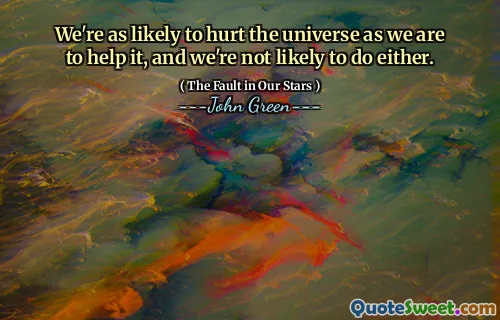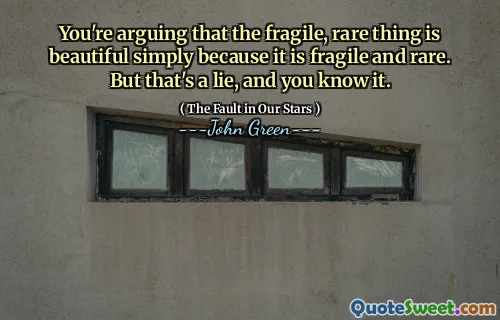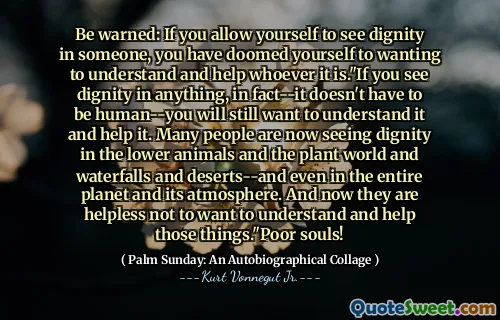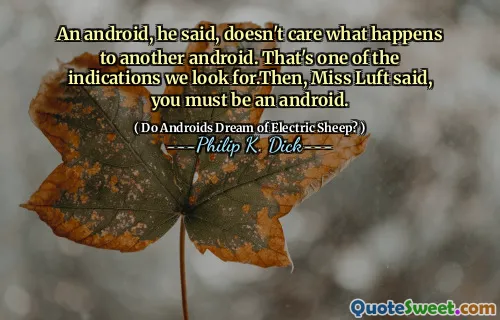
"To be fair to Monica," I said, "what you did to her wasn't very nice either." "What'd I do to her?" he asked, defensive. "You know, going blind and everything." "But that's not my fault," Isaac said. "I'm not saying it was your fault. I'm saying it wasn't nice."
This exchange from John Green's The Fault in Our Stars captures a complex interplay of empathy, blame, and the human tendency to struggle with circumstances beyond one's control. The conversation humorously yet poignantly addresses the difficult realities faced by characters dealing with serious illness. One character sarcastically accuses another of 'going blind' as if it were a deliberate act, provoking a defensive reaction that underscores how individuals often feel powerless or misunderstood within their struggles. The response clarifies that while the situation isn't the person's fault, the experience itself remains painful and challenging.
This dialogue highlights how conversations about pain, illness, and misfortune are rarely straightforward. It reflects on the inherent tragedy of blaming neither oneself nor others but acknowledging the suffering that impacts relationships. The tone balances humor with sincerity, revealing how levity is sometimes used as a coping mechanism to address heavy topics. It also speaks to the importance of fairness and understanding when interacting with those undergoing hardship—the need to recognize actions or experiences as neither entirely good nor bad but instead shaped by complex emotional and physical realities.
Ultimately, this passage deepens the novel's exploration of empathetic connections between individuals facing mortality and adversity, reminding readers that compassion involves recognizing pain without assigning blame while still acknowledging how difficult circumstances affect interpersonal dynamics.






